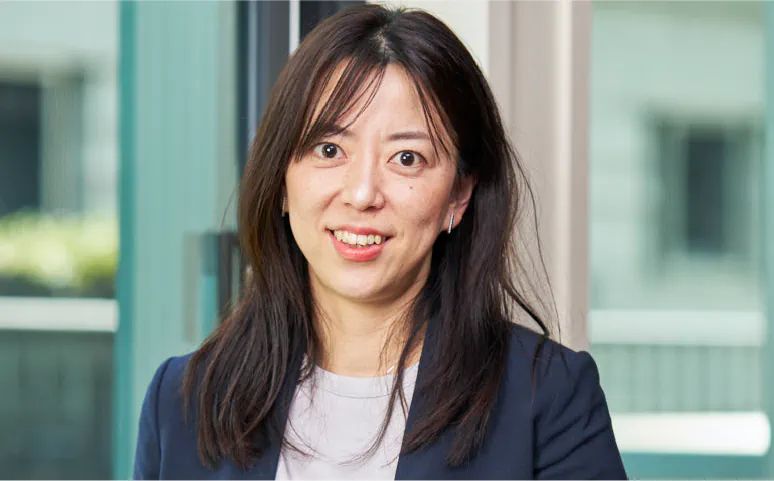Interview Key Social Issue | Development of local society and economy
Integrated telecommunications business in Ethiopia
Supporting Ethiopia's future through the establishment of telecommunications infrastructure and value-added services
Mobile telecommunications services are becoming an essential social infrastructure that is indispensable to people's everyday lives, just like electricity and water. However, there are still regions of the world where the development of telecommunications infrastructure is lagging behind and the adoption of mobile devices has not progressed sufficiently. One of those is Ethiopia in Africa. The slow spread of telecommunications service is holding back future economic development in the country and is creating a barrier to resolving social issues such as educational disparities and gender inequalities. Together with our partners, Sumitomo Corporation is entering the telecommunications service market in Ethiopia, which is still in its infancy, leveraging our expertise in launching telecommunications service from scratch in various regions of the world. Here, we highlight the efforts of experienced and passionate employees in their quest to further expand the telecommunications service area and provide various value-added services to contribute to medium- to long-term economic development and the betterment of people's lives in the country.
Interviewee

Yukari Soejima
Smart Infrastructure Business Department No. 2
Joined the Company in 2008. She was assigned to the former Telecommunication Business Department in 2011 and has since been involved in investing in the telecommunications business in emerging countries. In April 2013, she was assigned to Mongolia for two years and seconded to a local mobile carrier investee, where she was placed in charge of corporate planning and marketing. Since January 2022, she has been in charge of the integrated telecommunications business in Ethiopia and collaboration with Vodafone Group. She is also involved in local group company management.
Why
Telecommunications infrastructure development delays holding back economic growth
Ethiopia is a pivotal country in Africa, and its population of approximately 120 million is the second largest on the continent. It has a young population with a median age of approximately 19 years, and in recent years it has enjoyed high economic growth with annual GDP growth rates of 6% to 10%. On the other hand, roughly 80% of the population works in agriculture, and the country is still one of the poorest in the world due to recent large-scale droughts, rapid population growth, and low wages.
The mobile penetration rate is only around 50%, significantly lagging behind not only advanced countries but also many emerging countries that have achieved penetration rates of over 100% (more than one device per capita).
The widening of the international digital divide due to the delay in the development of telecommunications infrastructure will be a significant barrier for Ethiopia in achieving economic growth and social progress. As such, the Ethiopian government has established an economic policy called “Digital Ethiopia 2025.” The aim of the policy is to achieve sustainable economic growth by expanding employment and alleviating poverty through digitalization. As part of the policy, the government began opening up the telecommunications sector in 2019.
What&How
Forming strategic partnerships with leading global players to launch new telecommunications services from scratch
The mobile market in Ethiopia has long been dominated by a single company. The absence of competition has hindered incentives for technological innovation, expansion of coverage, and service improvements. This has been a contributing factor to the stagnation of mobile penetration.
To overcome this situation, the Ethiopian government decided to open up the telecommunications sector and implemented a competitive bidding process for new market entrants. Sumitomo Corporation won this bid in a consortium with UK-based Vodafone Group Plc, its Kenya-based group company Safaricom Plc, South Africa-based Vodacom Group Ltd., and British International Investment plc, a UK government-affiliated investment company, to gain a new entry into the Ethiopian mobile market.
Sumitomo Corporation has been in the integrated telecommunications business for approximately 30 years. Starting with the launch of operations in Mongolia in 1995, where no mobile telecom service had previously existed, we have promoted many projects, including the development of mobile telecom service in Russia and Myanmar. Through these projects, we have acquired a great deal of knowledge, such as in relation to specialized human resources in the telecommunications field, business networks with leading companies in Japan and abroad, negotiations with local governments, and project management skills, including risk management. In Ethiopia, the partnership between Vodafone Group, which operates telecommunications businesses in eight African countries and various other parts of the world, and Sumitomo Corporation, which has experience in launching overseas telecommunications businesses from scratch, serves as a driving force for the project.

Launching services in major cities despite intensification of civil conflict and aiming to expand services across Ethiopia by 2030
The consortium that acquired the integrated telecommunications business license established a local operating company, Safaricom Telecommunications Ethiopia Plc, in July 2021 and set to work on commercialization. Immediately afterward, there were some setbacks in preparing for operations due to the intensification of the civil conflict. However, in October 2022, service was launched in 11 major cities, including the capital Addis Ababa. The service area was subsequently expanded, and by April 2023 it had grown to 22 major cities across the country. The plan is to expand the service area to smaller cities and major roads and to increase the number of sales channels, enabling almost everyone in Ethiopia to have access to a mobile network by 2030. The development of this project has also contributed to the creation of direct and indirect employment, with over 5,000 jobs already created as of March 2023.
SIM sales at launch ceremony
Providing financial services to support economic activity in Ethiopian society
In this integrated telecommunications business in Ethiopia, we also aim to provide various value-added services utilizing the telecommunications network. As the first step, we will launch the mobile money service M-PESA in FY2023. Launched in Kenya in March 2007 by partner Safaricom Plc, M-PESA is a service that allows mobile money transfers to a recipient's mobile phone number via the user's mobile phone. Not only can it be used for mobile payments in stores, but it can also be used to get cash at the nearest store or kiosk when needed. The service quickly gained popularity in Kenya, where many people do not have bank accounts, due to the convenience of being able to do financial transactions on a mobile phone even without a bank account, and in recent years, the number of users has been increasing in other African countries and Eastern Europe.
Since the majority of people in Ethiopia still do not have bank accounts, we believe that widely rolling out M-PESA will have a significant social impact, changing people's lives and economic activities. The service will enable cashless payments, such as for daily purchases and paying public utilities, as well as secure transactions, such as for receiving salary payments and sending money to family members in rural areas.
In the future, we hope to see M-PESA used to provide small loans and other financial services to individuals and small and medium-sized businesses to promote business expansion and entrepreneurship, thereby contributing to local economic revitalization and employment growth.
In addition, easy and reliable billing and payment methods will be necessary for potential future services, such as online education and content distribution using the mobile network, so the rollout of M-PESA will lay the foundation for future value-added services. Sumitomo Corporation has the advantage of having business divisions that engage in various industries such as education, entertainment, agriculture, and healthcare. Furthermore, we possess a network to expand the utilization of this platform to external entities. While leveraging synergy as an integrated trading company, we will provide a variety of value-added services that contribute to the establishment of Ethiopia's infrastructure and the country's further development. We will also contribute to economic and human resource development in pursuit of our Corporate Message of “Enriching lives and the world.”
Going forward
Bringing network access to all in Ethiopia
Network construction is a major part of implementing a mobile telecommunications service. However, overseas businesses are subject to problems unique to the country or region in which they are located, including security issues and difficulties in obtaining land use approval. Each time, the challenge must be overcome by revising the plan or continuing to engage in persistent negotiations. During such times, it was reassuring to have a significant number of people within the Company who had previous experience executing projects in other countries such as Mongolia and Myanmar. My own previous experience in Mongolia, where I was involved in the operation of a local mobile carrier, also proved useful. Among the various businesses of trading companies, the telecommunications business is one that is directly tied to people's lives. I have actually been to Ethiopia, and many people still do not have mobile phones, especially in rural areas, and development of infrastructure other than telecommunications is also still underway. After experiencing firsthand the local way of life, I renewed my determination to change the situation through the telecommunications infrastructure and financial services we provide.
We will continue to take up the challenge of expanding the network and providing value-added services so that in the near future we will be able to see with our own eyes people using their smartphones to enjoy mobile services such as social media and shopping no matter where we go in Ethiopia.

Message from Safaricom Ethiopia ESG Manager
Mr. Tewodros Getachew
It has been very exciting to be the part of a company that is committed to Transforming the Lives of our society for a Digital Future. Safaricom Ethiopia's ESG program is underpinned by solid policies and procedures to ensure end to end implementation in all our operations through collaboration with our suppliers, vendors, and the communities where we conduct our business operations.
As an ESG Professional it is very encouraging to witness the changes that our company has brought to our society through direct and indirect job and business opportunities, network accessibility and high-speed internet connection. The introduction of mobile money will drive much needed financial and digital inclusion to millions of Ethiopians and will go a long way in improving lives meaningfully.
In line with our commitment to company's purpose "Transforming the Lives of our society for a Digital Future" has already provided direct and indirect employment opportunities to 5,321 people (among them, 150 are new graduates with over half of them being female and from rural areas).
As we continue to expand our operations and reach all of Ethiopia, we pay particular attention and support popular community events like the Women First 5K run, focusing on bringing together 15,000 women every year, and projects that focus on environment protection like the annual nationwide tree planting.
